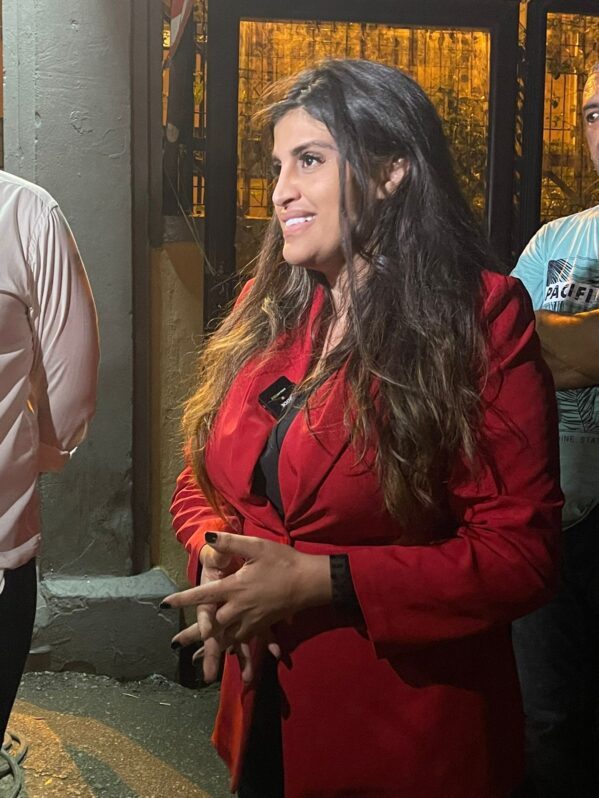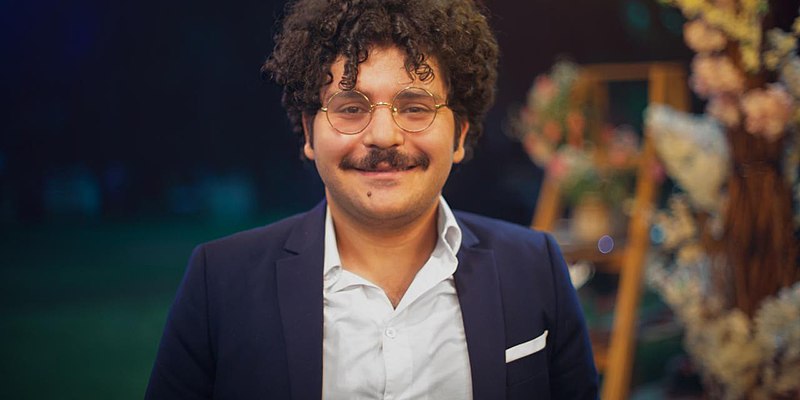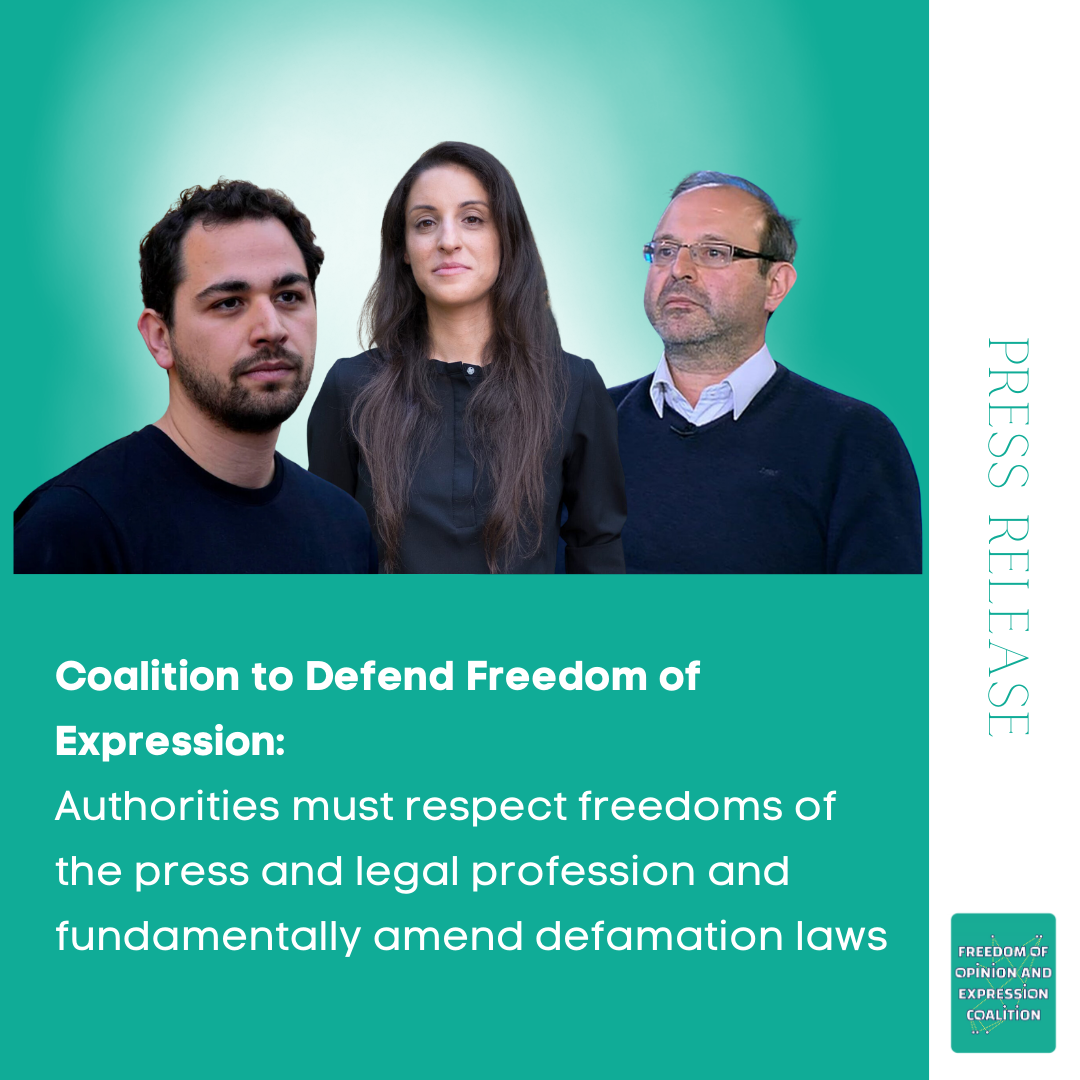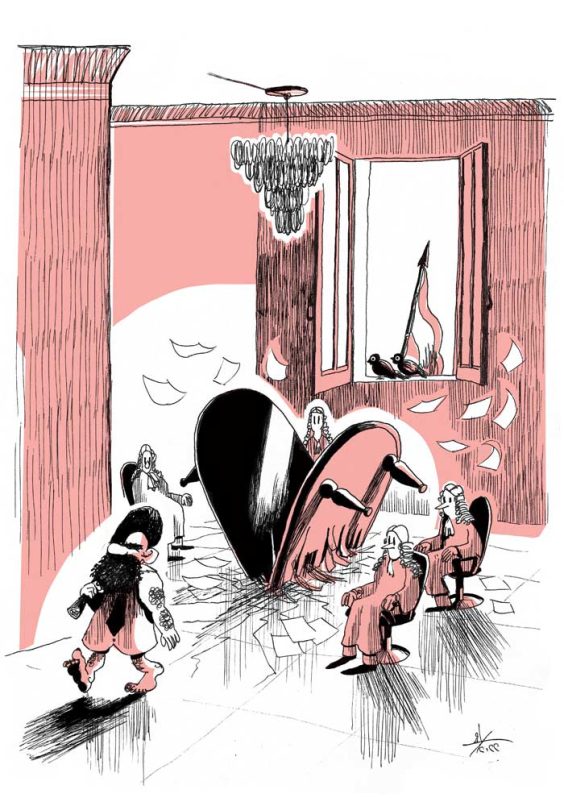Arresting Patrick George Zaky: Academic Freedom Now Contingent on Security Clearances in Egypt
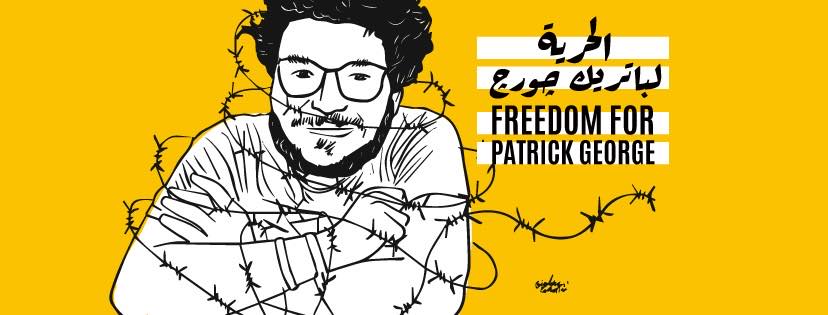
On the morning of February 7, the Egyptian security forces arrested Patrick George Zaky, a researcher on gender in the Egyptian Initiative for Personal Rights and a Master’s student at the University of Bologna in Italy, at Cairo’s airport as he returned from Italy on a short study break. The Public Prosecution leveled against him a number of charges that are leveled against most people arrested for political activities or activities related to public affairs, namely spreading false news and information, incitement to protest and overthrow the government regime, and administering and using a Facebook account for the purpose of disrupting public order. It then ordered that he be kept in remand for 15 days.[1]
Zaky’s arrest reverberated widely not only among people following public affairs and the human rights situation in Egypt but also within academic circles locally and globally. A number of European politicians and MPs, such as Italy’s former minister of education, several Italian MPs, and the president of the European Parliament, made statements about the need to immediately release Zaky, drop his charges, and ensure his return to study. Additionally, the Committee on Academic Freedom in the British Society for Middle Eastern Studies, which includes hundreds of researchers and academics around the world, sent an open letter to the Egyptian authorities to demand Zaky’s release. The letter also asks the Italian government and European institutions to exert all pressure and effort required to end the suffering of an academic researcher who committed no wrong.
This article attempts to cast more light on the situation concerning academic freedoms and the constraint imposed on academics and freedom of scientific research in Egypt, especially as this incident is not the first of its kind. A number of researchers and higher education students, both Egyptian and foreign, have previously been arrested and detained by the Egyptian security forces.[2] The article also aims to open a discussion about the importance of the solidarity and networking practiced by academic communities and institutions around the world and its effect in promoting academic freedom.
Widespread International Solidarity Elicits Rebuke from The Egyptian State
Zaky’s arrest caused a broad wave of solidarity across many universities and academic institutes globally that many did not expect to reverberate to that extent. Besides the aforementioned statements by European politicians and MPs, student unions in a number of European universities organized marches and vigils demanding Zaky’s immediate release. Meanwhile, the Italian media gave unprecedented coverage to the arrest, with the largest papers and television channels allocating large spaces to the incident. The Italian city of Bologna, where Zaky studies, has also witnessed continual demonstrations since his arrest approximately two weeks ago [at the time of writing]. The official Twitter page of Bologna Football Club 1909 even announced its support for Zaky and demanded his release in an unprecedented gesture. The widespread attention to this issue from the Italian public in particular stems from its parallels to the issue of Italian researcher and academic Giulio Regeni, who was killed in Egypt four years ago in an incident in which the Italian judicial authorities believe the Egyptian security agencies were involved.[3] Both Zaky and Regeni are academic researchers who suffered violations because of their academic activities.
Responses from the Egyptian authorities unequivocally denounced and rejected the influx of statements condemning the incident. Parliament Speaker Dr. Ali Abdel Aal issued a statement expressing his emphatic rejection of the Italian parliament speaker’s statements demanding Zaky’s release, deeming them an unacceptable interference in Egyptian internal affairs and an attack calling into doubt the Egyptian judiciary and justice process.[4] In the same vein, the prosecutor-general’s statement about the incident emphasized that the Public Prosecution is the “custodian” [amina] of the criminal case and asked all local and foreign parties and the media to stick to the information about the case that it publishes.[5] On our part, we emphasize the important role that the solidarity and networking campaigns launched by activists and people concerned with academic freedoms and the freedom of scientific research are playing in casting light on the situation of academic research in Egypt and increasing international pressure to release Zaky, improve his detention conditions, and treat him properly.
Security Clearances as a Requirement for Scientific Research in Egypt
The 2014 Constitution guaranteed freedom of scientific research[6] and the independence of universities.[7] It also obliged the state to sponsor researchers and inventors and protect and work to apply their innovations.[8] This it did on the basis that scientific research and guaranteeing the freedom to engage in it are a key means of achieving national sovereignty and building a knowledge economy.[9] However, the reality of the practice of academic research in Egypt and the conditions under which academics work shows that the state’s performance diverges radically from its constitutional obligation concerning scientific research and the independence of universities. For example, one of the most prominent restrictions exercised over freedom of scientific research is the requirement that faculty members obtain security clearances to travel to attend any academic conference or training workshop outside Egypt, which has negatively impacted their academic work and disrupted their skill development.[10] Under administrative decisions issued by most Egyptian university administrations, the travel of any faculty member requires the security agencies’ approval, whereas academic department councils and faculty administrations had previously been responsible for issuing such approvals.[11] Meanwhile, the Ministry of Higher Education has issued unpublished instructions to all Egyptian university administrations to the effect that no international conference may be convened or hosted in Egypt “without approval from the Ministry of Foreign Affairs and coordination with it in all administrative and organizational aspects”.[12]
One university figurehead interpreted these instructions as being issued “because of fear that the country will be infiltrated via foreign fellowships and because behind most projects put forward by foreign parties are goals that harm the country.”[13] If the state agencies and university leaderships see fellowships, academic conferences, and joint training workshops as posing a danger to national security and aiming to harm the country, then there is no room for discussion about freedom of scientific research and ensuring researchers’ freedom of movement and right to access and circulate information.
From another perspective, Zaky’s arrest was not the first time a researcher or academic has been targeted because of their research activities or interest in public affairs. In May 2018, the security forces arrested Walid al-Shobaky, an Egyptian doctorate student at the University of Washington in the US, after he conducted a number of interviews related to his field research on the judiciary’s role in the political changes in Egypt in recent years.[14] He was released on bail after approximately seven months of remand.[15] Meanwhile, in recent years, the security agencies’ practices restricting scientific research extended to arresting a number of Egyptian[16] and foreign[17] researchers and academics in the various Egyptian airports and not allowing them to enter the country in the first place. One legal report explained that the presence of these researchers’ names in the security agencies’ lists of people prohibited from entering the country is clear evidence that these agencies are tracking them and have prior knowledge of their opinions and activities. All the above shows clearly that Zaky’s arrest and interrogation for hours about his research and study in one of National Security’s premises[18] is merely another link in the chain of security policies and violations that impinge on freedom of academic research in Egypt and are practiced daily against researchers and academics, whatever their activities or nationalities may be.
Conclusion
In no way can the situation regarding academic research and the independence of universities be separated from the political reality that Egypt has been witnessing in recent years. The various state apparatuses handle any engagement with public affairs, even if neutral and academic, purely from a security perspective. Hence, given the state’s view that the hosting of academic conferences or travel of faculty members for foreign fellowships poses a danger to national security and aims to harm the country, we fear that Zaky’s arrest will not be the last of its kind, for the current regime will long see independent researchers and academics as a threat that must be confronted. Hence, the solidarity and networking among activists and the various academic institutes and universities across the globe caused by Zaky’s arrest must continue in a manner that promotes academic freedoms in Egypt and documents the violations that researchers endure because of their legitimate, constitutionally protected work.
This article is an edited translation from Arabic.
Keywords: Academic Freedom, Patrick Zaky, Egypt, Arrest
[1] “Ikhfa' wa-Ta'dhib Mudafi' Misriyy 'an Huquq al-Insan: al-Qabd 'ala Patrick George Zakiyy al-Bahith fi al-Naw' al-Ijtima'iyy wa-Huquq al-Insan bi-l-Mubadara al-Misriyya fi Matar al-Qahira Athna' 'Awdatihi fi Ijaza min Dirasatihi bi-Italia, wa-Htijazihi wa-Ta'dhibihi li-Akthar min 24 Sa'a qabla 'Ardihi 'ala al-Niyaba wa-Habsihi 15 Yawm”, press statement by the Egyptian Initiative for Personal Rights, 8 February 2020.
[2] “I'tiqal Akadimiyyayn Kanadiyyayn dimna al-Hamla al-Amniyya fi al-Qahira”, al-Fanar Media, 29 August 2013.
[3] “Qadiyyat Giulio Regeni: al-Iddi'a' al-Italiyy Yaqulu inna Ajhizat al-Amn al-Misriyya Ikhtalaqat Qisasan li-Harf al-Tahqiq”, BBC Arabic, 18 December 2019.
[4] “Abd al-'Al: Narfudu Tasrihat Ra'is al-Barlaman al-Urubiyy li-'tida'iha 'ala al-Sulta al-Qada'iyya, Youm7, 14 February 2020.
[5] “Bayan min al-Na'ib al-'Am bi-Tafasil al-Ittihamat al-Muwajjaha li-Patrick George: Naltazimu bi-l-Dustur wa-Mubarrirat al-Habs al-Ihtiyatiyy Mutwafira”, Shorouk News, 16 February 2020.
[6] Article 66 of the 2014 Egyptian Constitution.
[7] Article 21 of the 2014 Egyptian Constitution
[8] Article 23 of the 2014 Egyptian Constitution
[9] Ibid.
[10] “Fi Intizar Radd al-Amn.. 'an 'Awa'iq Safar A'da' Hay'at al-Tadris”, a report by the Association for Freedom of Thought and Expression (AFTE), 19 June 2019, p. 4.
[11] Ibid.
[12] Ibid., p. 5.
[13] Ibid.
[14] “Ikhtifa' Bahith Misriyy bi-Jami'at Washington ba'da Muqabalat Akadimiyy Mu'arid fi al-Qahira”, The New Arab, 24 May 2018.
[15] “Ta'yid Ikhla' Sabil al-Mudawwin wa-l-Sahafiyy al-Misriyy Wa'il 'Abbas wa-l-Bahith Walid al-Shubakiyy”, The New Arab, 3 December 2018.
[16] “Man' Akadimiyy Misriyy min Dukhul al-Bilad Bina'an 'ala Taqrir Amniyy min al-Safara fi Berlin”, Al-Masry Al-Youm, 30 January 2016.
[17] “Ba'da Yawm min Tarhiliha.. ‘al-Kharijiyya’: al-Bahitha al-Amrikiyya Muni'at min al-Dukhul li-'Adam Wujud Ta'shira”, Mada Masr, 14 December 2014.
[18] “Ikhfa' wa-Ta'dhib Mudafi' Misriyy 'an Huquq al-Insan”, op. cit.
